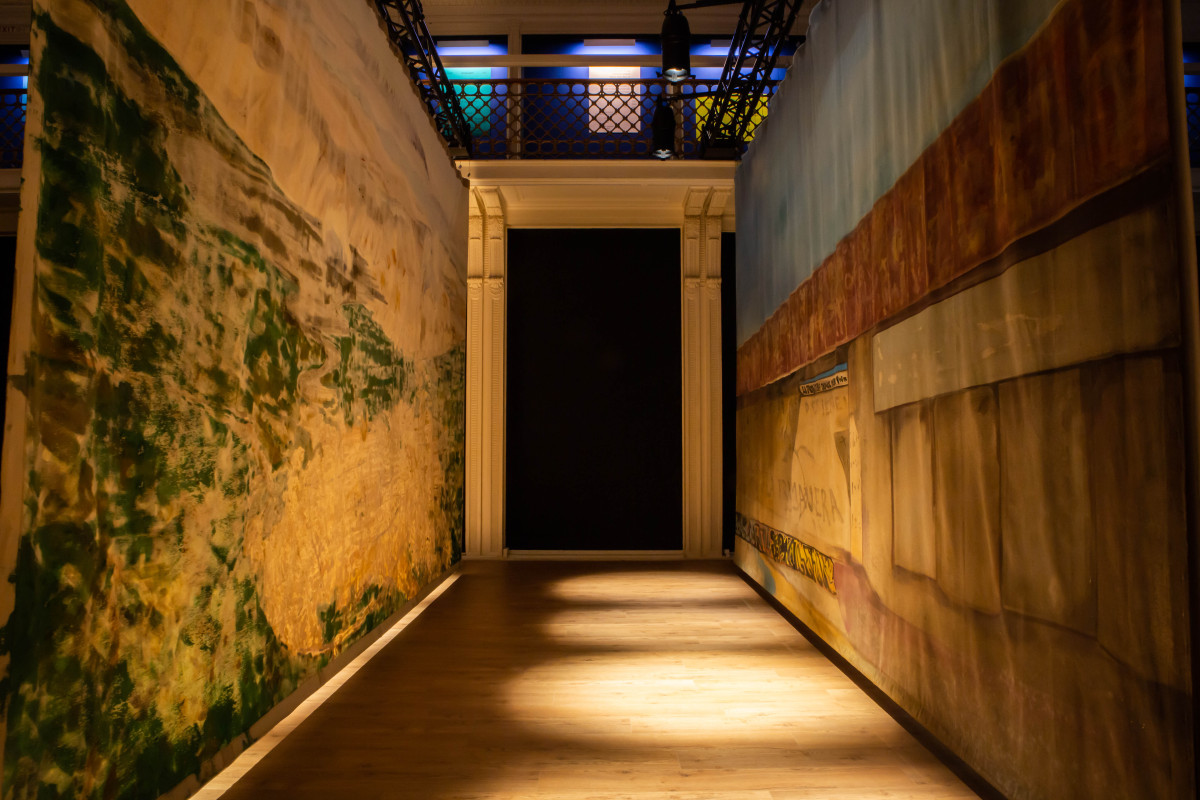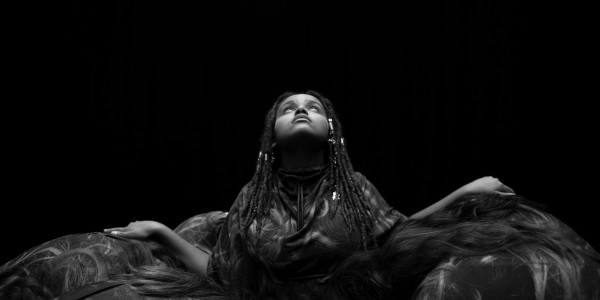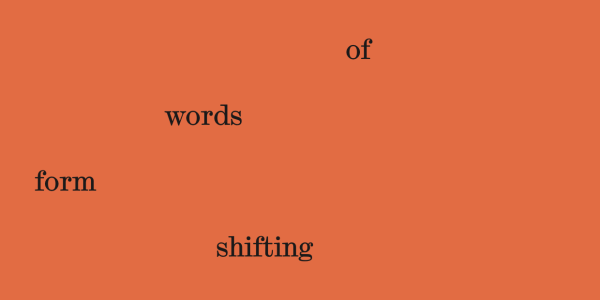Lawrence Abu Hamdan / 45th Parallel
-

Talbot Rice Gallery is delighted to present the first solo presentation of Turner prize winning artist Lawrence Abu Hamdan in Scotland. Sited in TRG’s iconic neo-classical Georgian Gallery, Abu Hamdan’s most recent film installation 45th Parallel – examining political grey areas in international legislature - is located above the University of Edinburgh’s Law School Library.
Shot on location in the only cross-border theatre in the world, the Haskell Free Library and Opera House, is a geopolitical grey zone that bisects the border of Canada and the United States. As borders across the world are increasingly surveilled, policed, and militarised, this municipal building is something of an anomaly.
Built in 1904 by local philanthropist Martha Haskell, the Haskell Free Library and Opera House was to provide education and cultural enrichment to the rural border communities located on the 45th parallel in Quebec (CA) and Vermont (USA). Today, a strip of black tape runs across the floor to mark the border, but visitors are allowed to cross freely from one side to the other and no passports are required to enter the building.
Staged within this unique site, a four-act monologue written by Abu Hamdan is performed by acclaimed Danish Palestinian film director Mahdi Fleifel. Sitting in the library, Fleifel recounts activities that have taken place through this loophole in the border. A case of gun smuggling; emotional reunions for families, prevented from entering the US under the contentious Trump administration travel ban (affecting seven predominantly Muslim nations), who shared meals in this small cross-border space.
Fleifel delivers his lines, from the stage on the Canadian side to empty theatre seats on the American side, as though addressing a court of law. He speaks of a lethal cross-border encounter and the murder of unarmed fifteen-year-old Mexican national Sergio Hernández. In 2010, whilst playing with friends near the US Mexican border, Hernández was fatally shot in the face by a US Border Patrol agent Jesus Mesa Jr, who was himself standing on US soil when he fired his weapon.
The Mexican government indicted Mesa for murder but the US refused to extradite him to Mexico. The US Department of Justice declined to prosecute Mesa. This land-mark legal case was taken to the US Supreme Court. If found guilty, the border agent’s brutal act, could implicate US-based military drone operatives who were responsible for tens of thousands of civilian deaths across the Middle East. Despite dissent from several Justices, the supreme court voted 5-4 in favour of Mesa. Justice Ruth Ginsburg noted that Hernández’s death was “not an isolated incident” of alleged misconduct by Border Patrol Agents.
Each act performed by Fleifel is demarcated by a scenographic change in the hand-painted backdrop on the Opera House stage. First, we see the original theatre backdrop of a picturesque Venice canal, followed by two newly commissioned scenes that are part of Abu Hamdan’s installation in the gallery. One curtain depicts a 1920 painting by British artist Richard Carline (1898–1980) of an aerial view of Damascus, and the other the concrete channel in El Paso-Juárez where the 2010 cross-border shooting took place.
45th Parallel speaks of the absurd, porous, and contradictory nature of borders, and the laws that govern these grey areas often with lethal effect. It is commissioned by Spike Island, Bristol; the Toronto Biennial; Mercer Union, Toronto; and the Western Front, Vancouver. Produced by LONO Studio and supported by Arts Council England and JustFilms/ Ford Foundation.
Lawrence Abu Hamdan is a Private Ear, listening to, with and on behalf of people affected by corporate, state, and environmental violence. Abu Hamdan's work has been presented in the form of forensic reports, lectures and live performances, films, publications, and exhibitions all over the world. He received his PhD in 2017 and has held fellowships and professorships at the University of Chicago, the New School, New York and most recently at the Johannes Gutenberg University Mainz where he developed his research AirPressure.info.
Abu Hamdan's projects reflect on the political and cultural context of sound and listening, and his audio investigations been used as evidence at the UK Asylum and Immigration Tribunal and been a key part of advocacy campaigns for organisations such as Amnesty International, Defence for Children International and Forensic Architecture.
Exhibition Guide







